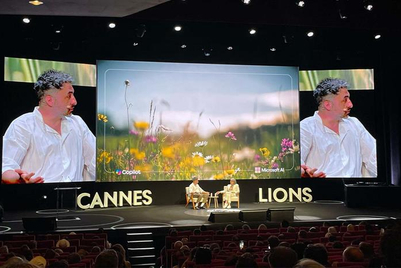
The skills needed to survive in the workplace are changing. And they’re changing fast. By 2020, more than a third of the desired core skill sets of most occupations—events industry included—will be comprised of skills that are not yet considered crucial to the job today, according to the World Economic Forum’s (WEF) Future of Jobs report. That’s only two years away, which means event businesses need to start planning now to ensure their employees have the right skills to meet future demands.
The events sector, like many industries, has already undergone a huge transformation over the past 10 to 15 years. Technological advances and the rise of digital have meant that much of the pre-event planning work around logistics has been automated.
While logistics is still very much a key part of event planning, client demand for a more holistic approach has driven many traditional event agencies to skill-up in areas such as creative, experiential, marketing, strategy, data and technology.
Chris Hobbs, managing director, Asia and group CMO at FIRST agency, says the most in-demand skills relating to the day-to-day responsibilities in events now include: tech-savviness, commercial acumen and experiential creativity.
“The industry has shifted to a more digital space, where budgets need to work much harder across multi jurisdictions, and where the consumer or delegate experience is much more a brand immersion and continuation of marketing platforms,” he says.
“The ability to learn various systems quickly is going to be increasingly important – with technology changing so rapidly, event professionals will need to keep up to date on the systems the industry is utilising day-to-day.”
Digital and data
Kim Myhre, managing director of MCI’s newly launched MCI Experience initiative, agrees that technology is having a massive impact on the skills needed by event managers as agencies move beyond the world of logistics to understanding audiences at a deeper level.
“There’s a lot of new event technology out there that is going to require a smart planner - not just to understand how the technology works but to understand when a certain technology is appropriate to help clients meet their objectives and craft compelling experiences unique to their audience,” he says. “Social media and content planning skills will continue to be more important and as experiences become increasingly visual, new advances in video and film will demand new skills.”

While event technology is enabling the capture of more data than ever before, this in turn is putting pressure on event planners to be skilled in analysing and protecting data, according to BCD Meetings & Events managing director EMEA, Nigel Cooper.
“All major contracts these days include things like information security, data protection and compliance,” he says. “Data protection knowledge will be critical and event managers need to be skilled in all sorts of non-event related things like this, as well as knowing how to organise a good event logistically and make sure the experience is everything the client is looking for.”
Social skills
Technology may be creating the need for new skills in the events sector, but increased automation and the rise of artificial intelligence (AI) could potentially make other skills redundant and put some existing roles at risk. Phyllis Teo, COO for APAC at George P. Johnson, believes that it won’t be a case of machines replacing people, but more “machines augmenting people’s ability to digest large amounts of data and making logical connections among them.”
She adds: “A lot of logistics work may be automated but there will be an increased need for people who provide the human touch in different avenues of marketing be it live events, digital, or something even newer. The challenge is for us to find a new role and transcend current mechanical or repetitive work so that we can be of better use.
“There may not be a need to promote brand messages given machines should be able to predict and select our matches, but there certainly is a need for people to be able to understand the huge amount of available data and use this to create an emotional engagement with customers.”
Events are after all about human interaction, so simply being good with technology won’t be enough. The WEF report predicts that in the future, social skills—such as persuasion, emotional intelligence and teaching others—will be in higher demand across industries than narrow technical skills, like programming or equipment operation and control.
Ian Cummings, vice president, EMEA at CWT Meetings & Events agrees and says that soft skills, such as “being participative, willing to engage and embrace working together” are key qualities in the events industry. So essentially, the event planner of the future will need strong technical skills, but these will need to be supplemented with strong social and collaboration skills in order to create events and experiences that truly engage audiences of the future.


.jpg&h=334&w=500&q=100&v=20250320&c=1)



.png&h=334&w=500&q=100&v=20250320&c=1)

.png&h=334&w=500&q=100&v=20250320&c=1)

.png&h=334&w=500&q=100&v=20250320&c=1)




.jpg&h=268&w=401&q=100&v=20250320&c=1)
.jpg&h=268&w=401&q=100&v=20250320&c=1)
.png&h=268&w=401&q=100&v=20250320&c=1)

